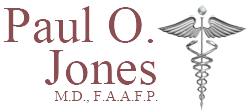Food Poisoning occurs when a person ingests something that contains harmful bacteria, viruses or parasites. Sometimes bacteria produce a toxin that cause symptoms of the food borne illness. In our country there have been many reports over the years of different food borne illnesses; the most recent being the 2011 outbreak of Listeria in 23 states.
Symptoms of Food Poisoning
The symptoms may be several hours to days after eating the contaminated food, and may include:
- Abdominal Pain
- Fever
- Diarrhea
- Loss of Appetite
- Nausea and Vomiting
- Weakness and Fatigue
Who is most at risk?
People who suffer from chronic medical illnesses such as diabetes or chronic kidney disease are more at risk. Pregnant woman and those with a weakened immune system, such as patients who have received an organ transplant or those with the HIV virus are also susceptible to illness. Finally, travelers to areas outside the US may also be exposed to food borne illness.
When should I see the doctor?
You should make an appointment to see your doctor if you have a fever over 101 degrees, severe diarrhea lasting more than 3 days, blood in the stool or, intractable vomiting. Seek emergency treatment is you are vomiting blood, have severe abdominal pain or, symptoms of dehydration such as dry mouth, sleepiness, confusion, headache, or dizziness.
How do I avoid food poisoning?
Food poisoning can be avoided by following these steps:
- Do not put rae and cooked meats on the same plate.
- Utensils that are usd to prepare raw meat should be thoroughly washed before using them on other food.
- Clean countertops, cutting boards, and utensils thoroughly between exposing them to different food items.
- Cook meat thoroughly. Beef should be cooked to at least 160 degrees, chicken to 180 degrees and fish to 140 degrees Fahrenheit.
- Refrigerate foods that are going to be leftovers within 4 hours.
- Throw away foods in damaged or bulging cans.
- Do not eat food that has been unrefrigerated for long periods of time.
- Avoid eating soft cheese if you are pregnant or have weak immune system.
- When travelling abroad do not eat fruits or raw vegetabels that have not been washed with soap and chean water that has been filtered or boiled.
- Please remember to wash your hands thoroughlyand often with soap and water.


